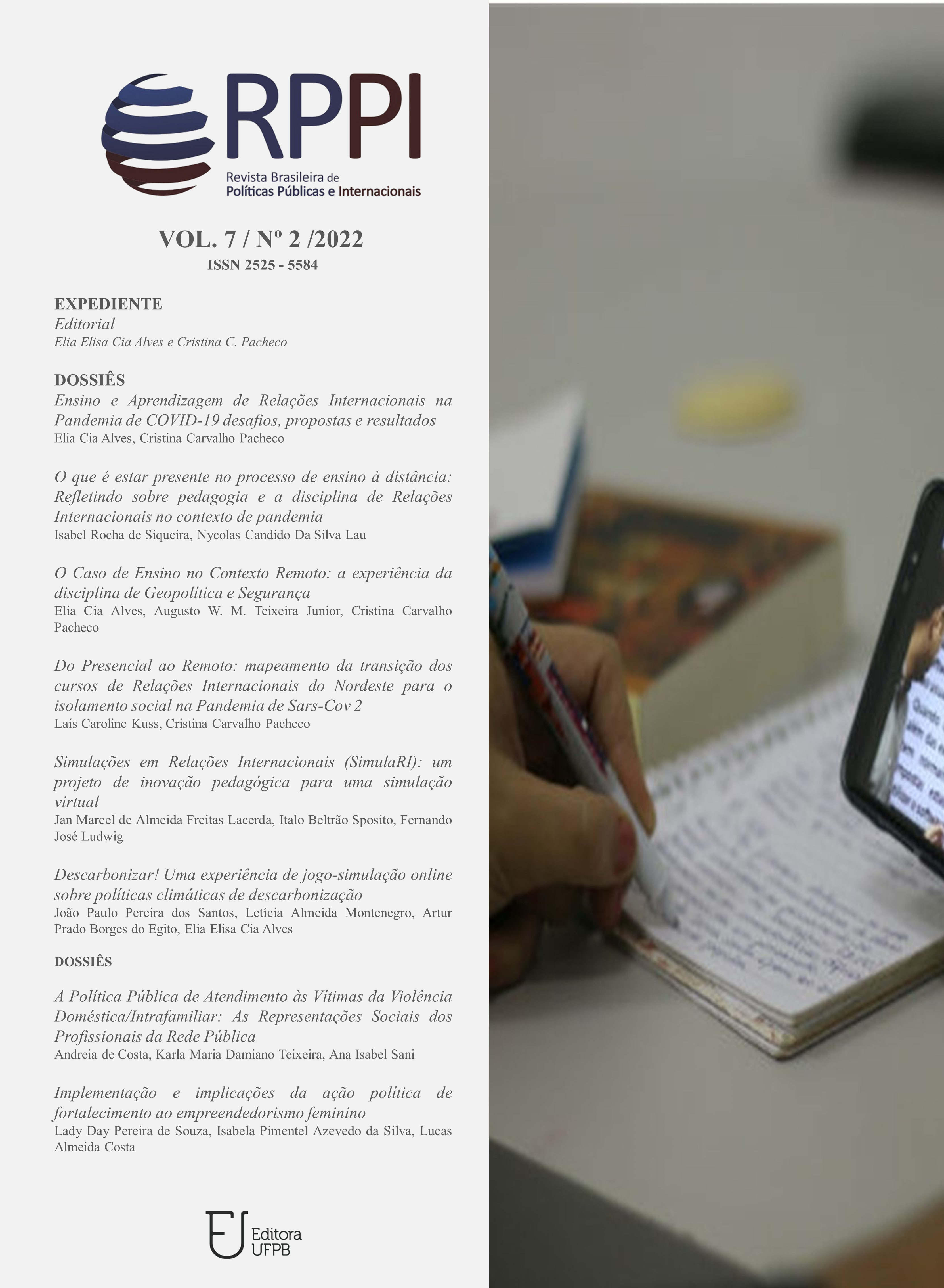O que é estar presente no processo de ensino à distância?
Refletindo sobre aprendizados na disciplina de RI durante a pandemia
DOI:
https://doi.org/10.22478/ufpb.2525-5584.2022v7n2.61186Keywords:
presença, ensino à distância, arquitetura digital, narrativa, futurosAbstract
What distance learning brought to the classroom was some rupture in many cases, but it also provoked us into invest even more in formats and processes. In the case of International Relations, a discipline in which formation does not presuppose pedagogical training, the pandemic may represent an important turning point. We propose to think of three “interstices” insofar as they ask what it means to be present in the classroom. We deal with the way in which the digital architecture in which we operate divides us into pieces of information and what the role is of pedagogical practice in challenging this form of digital existence, even in times of remote education. We also talk about the role of narratives as ways to promote contiguity, calling for a qualified presence in the conversation. Finally, we look at how teaching can be permeated by constructions of alternative imaginaries in such ways as to guarantee presence in this construction. For all these reflections, we offer cases of “in-class” activities to extend this contiguity in terms of a decompression of narrative arcs, that is, in defiance of the sometimes divisive and superficial engagement of digital times.
Downloads
Downloads
Published
Issue
Section
License
Copyright (c) 2022 Isabel Rocha de Siqueira, Nycolas Candido Da Silva Lau

This work is licensed under a Creative Commons Attribution 4.0 International License.
Autores que publicam nesta revista concordam com os seguintes termos:- Autores mantém os direitos autorais e concedem à revista o direito de primeira publicação, com o trabalho simultaneamente licenciado sob a Licença Creative Commons Attribution que permite o compartilhamento do trabalho com reconhecimento da autoria e publicação inicial nesta revista.
- Autores têm autorização para assumir contratos adicionais separadamente, para distribuição não-exclusiva da versão do trabalho publicada nesta revista (ex.: publicar em repositório institucional ou como capítulo de livro), com reconhecimento de autoria e publicação inicial nesta revista.
- Autores têm permissão e são estimulados a publicar e distribuir seu trabalho online (ex.: em repositórios institucionais ou na sua página pessoal) a qualquer ponto antes ou durante o processo editorial, já que isso pode gerar alterações produtivas, bem como aumentar o impacto e a citação do trabalho publicado (Veja O Efeito do Acesso Livre).




_.jpg)






.png)


.jpg)
_.png)
